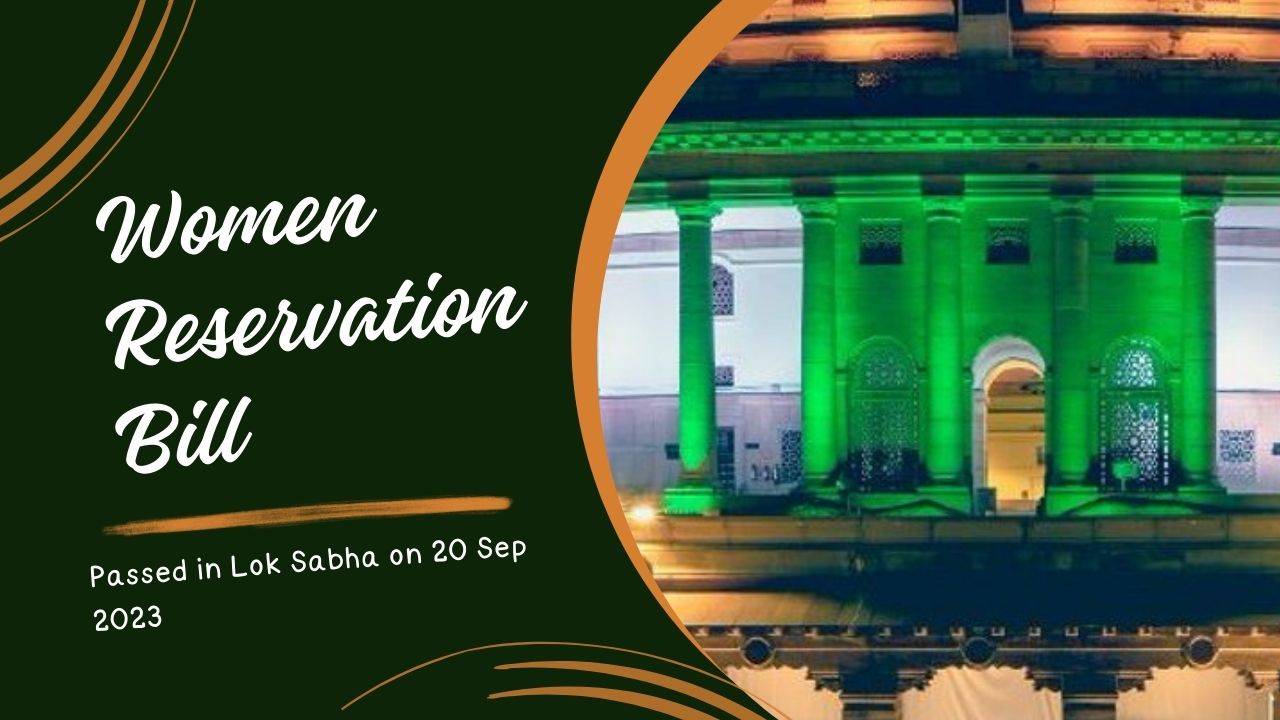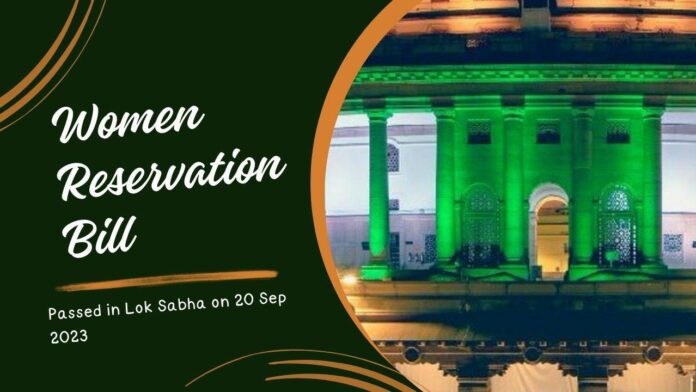-
Home -
News
The Women’s Reservation Bill was passed in the Lok Sabha on 20 September 2023. Let’s know more about Women Reservation Bill from below information.

According to the 108th Women’s Reservation Bill 2008 of the Constitution, one-third (33%) of the seats in state legislative assemblies and parliaments should be given to women. Within the 33% quota, the law suggests sub-reservations for SCs, STs, and Anglo-Indians. Alternate distribution of reserved seats is an option for several states or union territory constituencies. As per the passed law, the reserved seats for women will be abolished after 15 years from the date of commencement of the amendment act.
Why is the Women’s Reservation Bill important?
-
caste groups – Any plan for women’s reservation should be in accordance with constitutional principles and should take into account caste diversity.
-
Gender Quota – Without gender quotas, women’s representation will remain minimal, adversely affecting our democracy.
-
Panchayats – Recent research on panchayats has shown the beneficial effect of reservation on resource allocation and women’s empowerment.
-
share vote- Despite the increase in the percentage of women voting, there are still not enough women in positions of power.
Purpose of Women Reservation Bill
This quota of 33% seats for women will make India one of only 64 countries in the world to have reserved seats for women in their national parliaments. In general, achieving a significant 30 percent representation by women in parliament has positive outcomes for women’s empowerment.
What is the status of women’s rights in India?
-
Gujarat – Only 8 percent of the candidates in its 182-member parliament were women.
-
Himachal Pradesh – While one out of every two voters are women, 67 men have been elected and only one woman.
-
National average – The proportion of women in state legislatures across the country is still at 8%.
-
Classification – According to a survey by the Inter-Parliamentary Union, India ranks 144th out of 193 countries in terms of representation of women in parliament.
Key Issues and Analysis of Women Reservation Bill 2023
-
The reservation policy is contested. Proponents say affirmative action is needed to help women. Recent panchayat research suggests that reservation empowers women and allocates resources.
-
Opponents say it will perpetuate women’s inequality because they won’t compete on merit. They argue that this tactic diverts attention from electoral reform concerns such as the criminalization of politics and internal party democracy.
-
Reservation of seats in Parliament limits voter choice to women. Thus, some analysts suggest reservation of political parties and dual seats.
-
Rotating certain seats in every election may demotivate the MLA to work for his constituency as he may not be re-elected.
-
After the constitutional amendment to enable the OBC quota, the 1996 Women’s Reservation Bill Report advocated reservation for OBC women. Reservation was also proposed for Rajya Sabha and Legislative Councils. The bill does not contain any proposals.
First Published: 21 Sep 2023, 16:35 IST
Take the quiz.
Show your support for agrijournalism.
Dear Patron, Thank you for being our reader. Readers like you are our inspiration to advance agri-journalism. We need your support to continue delivering quality agri journalism and reach farmers and people in every corner of rural India.
Every contribution is valuable for our future.
